More and more, the employees and consumers of today are looking beyond pound signs when deciding who to work for, buy from and invest with. Increasingly they are aligning themselves with those companies which are proactively making a positive impact beyond their bottom line.

Many businesses are developing a strategic focus on being socially responsible as well as commercially driven, but doing so in a genuine and effective way requires a strong vision and unfaltering commitment. The most effective organisations harness their people, capital, processes and know-how to contribute to wider social development and drive added value outside of a business.
Larry Fink’s recent clarion call, in the shape of his annual letter to chief executives entitled A Sense of Purpose, was clear. The BlackRock chairman and chief executive challenged the leaders of the companies in which his firm invests to think hard about corporate responsibility, asking what they were doing to address the impact their activity has on important issues including community, the environment, workplace diversity, technological change and human space in a world of increasing automation.
Research backs this up: a 2015 study by Arabesque Partners and the University of Oxford found that 88% of companies with robust sustainability practices demonstrated better operational performance and that share price performance is positively influenced by good sustainability practices in 80% of cases.
Taking such an approach helps strengthen a brand, especially where the positive influence of social purpose begins to permeate the DNA of a company. Delivering products, services, values and a mission that result in not just a great bottom line but a greater good connects business to the widest possible stakeholder groups, knitting them into the fabric of the communities that they serve and exist within. But it can all go wrong without great governance and vigilance to ensure that competing elements of corporate strategy are not in conflict.
For many years, Starbucks pursued a variety of noble initiatives that included investing more than $70m into the protection of coffee bean farmers, which helped them improve the sustainability and resilience of their supply chain. This played a part in 16 years of consistent growth, until 2017 when Starbucks damaged its reputation for fairness, ethics and transparency after regularly hitting the headlines for the wrong reasons and being accused of global tax evasion.
Similarly, the recent Volkswagen emissions scandal represents an intrinsic failure of strategy. Its deliberate circumvention of the rules to gain a competitive edge with a range of environmentally friendly cars not only damaged its brand reputation, but resulted in it having to pay out more than €25bn in damages.
Importance of social purpose
Increasingly, occupiers of all sizes are looking to locate in buildings and places that not only suit the functional aspects of their businesses, but also match their own aspirations as brands in making a positive impact on their staff and the wider world. As such, developers and landlords need to acknowledge that decision-makers’ wish lists have changed dramatically from traditional priorities of location, size and price to include variables like sustainability, sense of place and community.
A key shift within the property industry today is the focus on health and wellbeing, as landlords and developers look to enable and promote a happier and healthier workforce. This is manifesting itself across a number of areas, from building design, air quality and green space, to amenity provision, access and sustainable modes of transport.
To attract young professional talent, social purpose is no longer a luxury: it’s a key decision factor. Millennials are increasingly attracted by modern workplace essentials such as flexible working, social value and a sense of purpose in their work life. There is a growing body of evidence that suggests people are willing to accept a lower remuneration if these conditions can be met to a high standard.
Our vision to create a world-class destination in a rapidly changing and highly connected world goes hand in hand with delivering a positive and lasting impact to the local community
Schemes such as King’s Cross and Regent’s Place in London and Barangaroo in Sydney are testament to this approach, creating destinations that appeal to occupiers which don’t simply want space, but want to be part of a place that draws in the surrounding community and reflects their brand. History has proved that developments like these succeed not just by creating great-looking buildings, but because of the positive impact they have beyond the architecture.
Our ambition for Airport City Manchester is no different; the vision to create a world-class destination in a rapidly changing and highly connected world goes hand in hand with delivering a positive and lasting impact to the local community. Our aspiration is to create 16,000 new career opportunities during the next 10 to 15 years, building on the 3,000 jobs that have already been created.
It’s essential that job creation opportunities like this are delivered alongside investment in the social and community fabric of a place. While this can be realised across a number of areas, all must have the purpose of creating positive opportunities across the broad stakeholder group connected to the development.

Chris Boardman, Greater Manchester’s first cycling and walking commissioner, has suggested the region should spend £1.5bn to make it one of the best places in the world to cycle – an investment he claims will result in a return of at least £8.3bn in public benefits.
Boardman’s ambitious project has broad support from mayor Andy Burnham. It also provides a great opportunity for property developers to support his aspiration and make a tangible difference in a region where just 3% of children cycle to school and 50% of adults are physically inactive.
Working with British Cycling, our commitment to enabling and promoting cycling at Airport City Manchester is taking shape in the form of high-quality bike hub provision, changing facilities, maintenance workshops and cycleway development. Simple, safe and enjoyable cycle routes will connect the wider Enterprise Zone and key regional locations, allowing users to commute, exercise and relax with ease.
Drawing inspiration and input from local neighbours and key stakeholders across the region, our vision for Airport City will see the activation and delivery of a diverse programme of initiatives and commitments. These range from sustainable transport, green space and high-performance buildings to global apprenticeships, community food projects and wellbeing activities.
In his letter, Larry Fink suggests that “a company’s ability to manage environmental, social and governance matters demonstrates the leadership and good governance that is so essential to sustainable growth”. With this in mind, leaders in our industry need to be aware of the influence creating new places can have on the local community. From employee welfare and local community engagement to environmental sustainability and education, their actions can have a positive and lasting impact that resonates far beyond the developments they create.
In doing so, it’s possible to attract like-minded businesses that are driven not only by commercial endeavour but also a corporate purpose and the opportunity to translate their ambition into realised local impact; businesses that understand the potential within the local community and workforce and see positive engagement with those communities as key to corporate success.
That’s why we’re excited by the potential of Airport City Manchester, where we are committed to providing the conditions for long-term success, not just for the organisations that choose to locate and do business here but for the lasting positive impact it will have on the wider region and, most importantly, the people and communities who live nearby.
Lynda Shillaw is chief executive officer of MAG Property
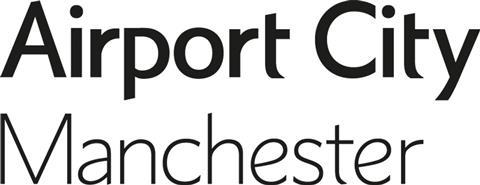
About Airport City Manchester
Airport City Manchester is one of the most exciting business destinations in development today, comprising 5m sq ft of office, hotels, advanced manufacturing and logistics space. Situated adjacent to Manchester Airport, the £1bn development is perfectly positioned for the UK, Europe and the world. A place to embrace a changing future.
Topics
PW Perspectives – Mipim 2018
- 1
- 2
- 3
- 4
- 5
- 6
- 7
- 8
- 9
 Currently reading
Currently readingSocial responsibility is essential in placemaking
- 10
- 11


































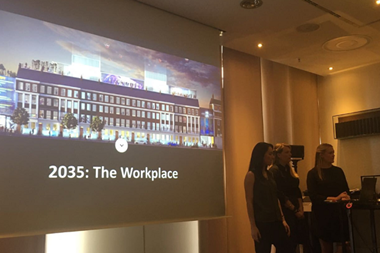

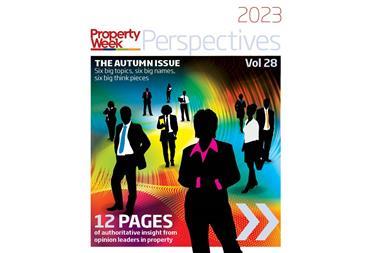

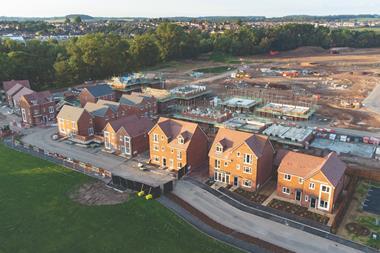
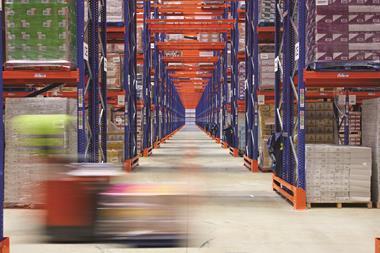
No comments yet